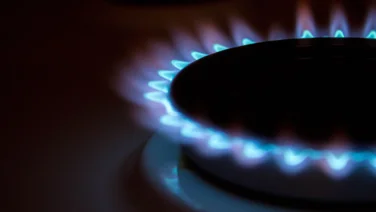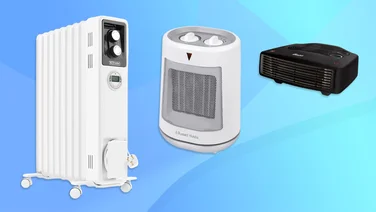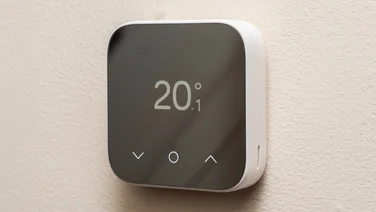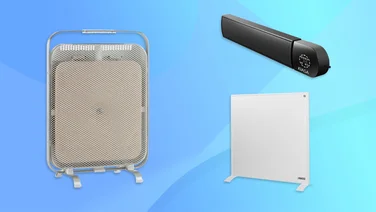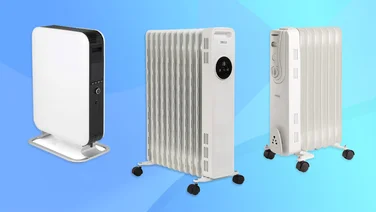To help us provide you with free impartial advice, we may earn a commission if you buy through links on our site. Learn more

- Britain’s largest generator of zero-carbon energy
- Free electricity on Sundays if you cut your usage during peak hours
- One of the worst for customer satisfaction
- Higher than average complaint numbers
- Poor value for money
EDF Energy claims to be Britain’s biggest generator of zero-carbon electricity, which it harvests from nuclear energy, solar and wind power. These sources make up 73% of its overall fuel mix.
Owned by the French state-owned company EDF (Électricité de France), EDF Energy was created in 2002 when it took over a number of British energy companies and power stations.
EDF Energy was one of the former “Big Six” energy companies in Great Britain. It’s one of the largest suppliers now and has 10% of the home electricity market and 9% of the home gas market, according to the latest figures from the energy regulator Ofgem for the first quarter of 2025.
It wasn’t top or highly commended in any category of our 2025 Energy Awards. In our survey, just 16% of its customers said they were extremely likely to recommend EDF Energy to others – the lowest among all the providers we rated. This pales in comparison to the 53% rating for the best supplier, Octopus Energy.
To find out how to get the best energy deal for you, visit our guide to the best energy suppliers
What kind of tariffs does EDF Energy offer?
EDF Energy has a tracker tariff that gives you a discounted standing charge for a year and a fixed tariff.
It also offers a number of “low carbon” tariffs – for EV owners with cheaper electricity at night, for households with an air source heat pump with cheaper rates twice a day and solar tariffs. These include rates for exporting your surplus energy to the grid through the Smart Export Guarantee (SEG). All suppliers with at least 150,000 customers must offer at least one SEG tariff.
All EDF’s low carbon tariffs are backed by 100% zero carbon electricity.
Does EDF Energy offer good value for money?
A relatively low proportion of EDF’s customers were satisfied with its value for money in our survey, with just 53% saying they were very satisfied or satisfied. This was the lowest of all the suppliers in our survey and a sizeable 19 percentage points lower than for the award winner in this category Utility Warehouse with 74%.
EDF Energy was at the lower end for customer trust too: 20% said they completely trust it to act in their best interests. This compares to 30% for Octopus Energy and British Gas.
How good is EDF Energy at handling complaints?
EDF was second from bottom for customer satisfaction with its complaint handling in our survey. Just 16% said they were very satisfied with it. Ovo Energy came bottom with a paltry 13%. In contrast, the top provider Octopus had 31% saying they were very satisfied.
When it comes to the number of complaints, EDF received higher than the industry average. It had 1,245 per 100,000 customer accounts, according to the most recent data published by the energy regulator Ofgem. The best supplier for this in our survey was Octopus, which had just 561 over the same period.
EDF did better than Octopus at resolving them, though, with 76% resolved by the end of the next working day compared to 51% for Octopus, and 93% within eight weeks versus 79% for Octopus. The best was Utility Warehouse with 83% and 100% respectively.
Ofgem complaints data
| Complaints per 100,000 customer accounts | Industry average complaints per 100,000 customer accounts | Complaints resolved by end of next working day | Complaints resolved within eight weeks |
| 1,245 | 1,052 | 76% | 93% |
Notes: Data is for the second quarter of 2025.
How clear are EDF Energy’s bills?
It came bottom for the clarity of its bills but still had a reasonable proportion of customers saying they strongly agree or agree that their bills are clear and easy to understand at 63%. The award winner in this category, Utility Warehouse, had a significantly higher percentage with 79%, as did the highly commended supplier Octopus with 81%.
Octopus wasn’t the award winner here as it had a smaller proportion of its customers saying they strongly agree that their bills are clear and easy to understand than Utility Warehouse at 30% versus 40%.
How easy to use are EDF Energy’s website and app?
EDF Energy was rated fairly well for its website and app, coming third for both. Some 35% of its customers said its website was very easy to use. This compares to 49% for the top performer Utility Warehouse. For its app, 35% said it was easy to use versus around half for the winners in this category, Octopus and Utility Warehouse.
Should I choose EDF Energy?
The majority of the energy EDF Energy supplies is zero-carbon (mostly from nuclear energy rather than renewable sources), much of which it generates itself, but it received poor scores in many aspects of our survey.
EDF Energy was the worst supplier overall, taking into account value, how likely customers were to recommend it to others and satisfaction with its complaint handling. Try Octopus Energy or Utility Warehouse for a better service.

